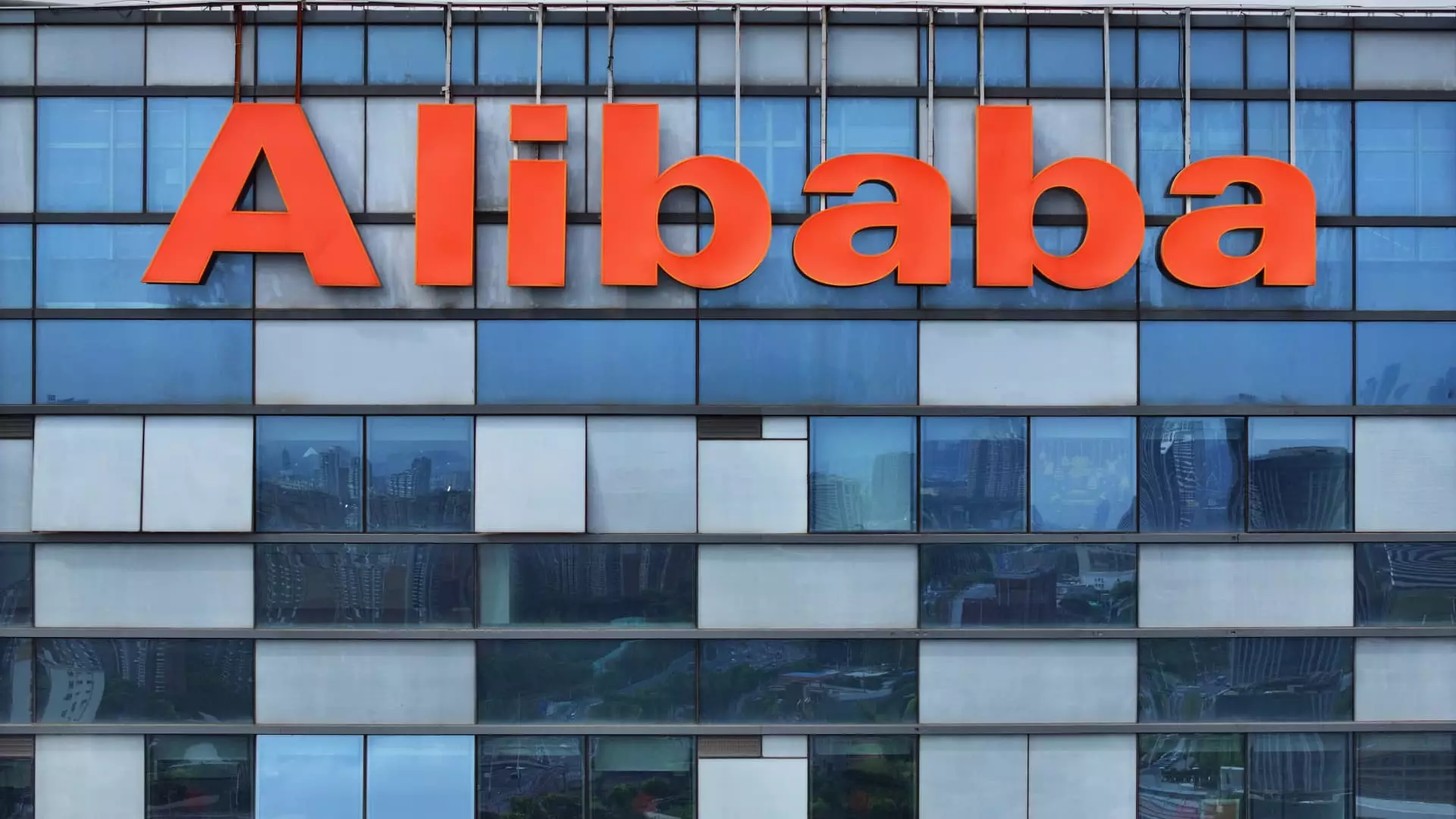Alibaba Group, the Chinese e-commerce titan, has shown remarkable resilience and growth in recent trading sessions, particularly following the release of its latest quarterly results. On Friday, its shares in Hong Kong surged as much as 11%, ultimately closing with an impressive gain of 9.18%. This surge in stock price can be attributed to robust performances from its cloud intelligence and e-commerce divisions, signaling a potential resurgence in both corporate prosperity and investor confidence.
The trajectory of Alibaba’s e-commerce segment appears bright, bolstered by ongoing government efforts to stimulate consumer spending. Notably, last year, the Chinese government unveiled plans to disburse 300 billion yuan (approximately $41.5 billion) via ultra-long special government bonds aimed at enhancing its trade-in and equipment upgrade policies. Analysts, including those from Nomura, anticipate that these trade-in subsidies will continue to prop up Alibaba’s e-commerce growth significantly into the first half of 2025. Vey Sern Ling, a senior equity advisor at UBP, underscored this sentiment, stating that domestic e-commerce is recovering and moving towards sustainable profitability.
This positive outlook is crucial in a climate where technology stocks in China have witnessed substantial gains, following the rise of domestic competitors challenging the U.S. AI supremacy. The ascent of AI-focused companies like DeepSeek has injected a renewed vigor into the broader Chinese tech landscape, setting the stage for Alibaba’s own priorities.
Amidst a competitive market and evolving technological landscape, Alibaba is at a pivotal point in its journey. Analysts from Barclays emphasized that the next three years will be critical for the company’s concentrated investment in AI and cloud infrastructure. The company has already launched its Qwen 2.5-Max flagship AI model and is experiencing a notable uptick in demand for AI inference services, which now represent a staggering 70% of new demand. As explained in their analysis, “Great opportunities, however, often require significant investment.” The planned capital influx during this period is expected to eclipse cumulative spending from the previous decade, with projections nearing 270 billion yuan.
This ambitious strategy reflects Alibaba’s intent to cement its position in the rapidly evolving AI landscape and meet growing market demands. However, this also places a significant burden of expectation on the company to deliver tangible results from these investments within a competitive timeframe.
Alibaba’s journey hasn’t been without obstacles. Since 2020, the company has been under the scrutiny of regulatory bodies in China, particularly following the cancellation of the IPO for its affiliate, Ant Group. This regulatory crackdown has tested the resilience of Alibaba’s business models and overall corporate strategy. Nevertheless, recent developments indicate a slight thawing of relations between the company and the government.
Jack Ma, Alibaba’s enigmatic founder, made headlines by participating in a rare meeting with Chinese President Xi Jinping. During this meeting, Xi urged private enterprises to enhance their capabilities and foster confidence within a “new era” of business operations. Such gestures could imply a less hostile regulatory environment, which may provide a conducive backdrop for Alibaba’s investments and operations moving forward.
In terms of financial health, Alibaba has posted stellar results for the quarter ending December 31. The company reported a net income of 48.945 billion yuan (around $6.72 billion), significantly outpacing market expectations, which were set at 40.6 billion yuan. This figure is a remarkable increase compared to the 14.4 billion yuan from the same quarter a year prior. Furthermore, Alibaba’s revenue for the quarter reached 280.15 billion yuan, which also exceeded analysts’ forecasts.
The strong performance not only reflects the effectiveness of Alibaba’s strategic maneuvers amidst regulatory pressures but also illustrates a restoration of investor confidence. Following the announcement of these financial results, shares listed in the U.S. saw an uptick of more than 8%, marking a positive reaction from the market.
Alibaba stands at a critical juncture, balancing formidable growth prospects in cloud intelligence and e-commerce against a backdrop of regulatory scrutiny and heightened competition. The company’s proactive investments in AI and cloud infrastructure signal its aggressive strategy to maintain leadership in the tech sector and adapt to evolving market dynamics. As Alibaba transitions into this new era, its ability to navigate these complexities will be pivotal in shaping its future trajectory. With a favorable economic landscape and an eye on innovation, Alibaba may very well redefine its narrative as a dominant player in not only Chinese markets but globally as well.

